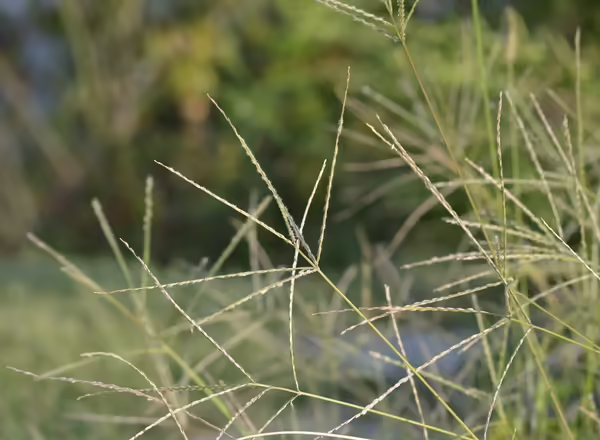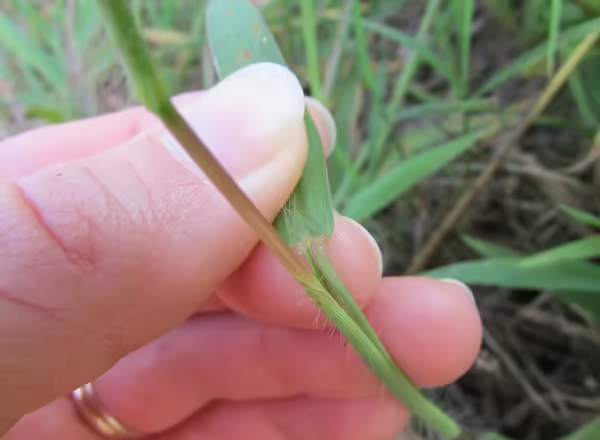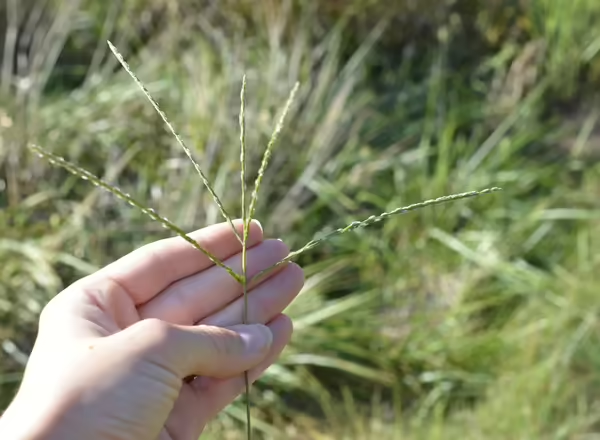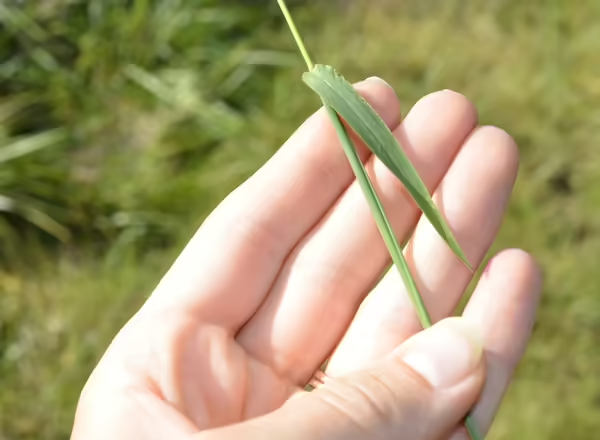There are several species of crabgrass that can be found in Illinois, but the two most widespread are Common Crabgrass, Digitaria sanguinalis, also called Hairy Crabgrass, and Smooth Crabgrass, Digitaria ischaemum.
Identifying characteristics for the crabgrasses
Both of these species of crabgrass are non-native summer annuals. They grow in meadows, disturbed areas, and lawns. They have:
- Short, broad leaves
- Short, membranous ligules
- Raceme inflorescences with finger-like collections of spikelets held on flattened stalks
Telling apart the two species
Crabgrass is crabgrass, right? If your goal is to eradicate it, then knowing which specific species you have isn't necessarily important. But you can find the details of telling the two species apart below.
- Height: Common crabgrass can grow between 1-3 feet tall, while smooth crabgrass tends to stay under 1.5 feet tall.
- Hairiness of leaves: Common crabgrass has hairy leaf sheaths, while smooth crabgrass has hairless sheaths. In common crabgrass, the base of the leaf blades can also be hairy, and in smooth crabgrass you can find some sparse hairs at the base of the leaves. So make sure to look at the sheaths to tell them apart.
- Size of the spikelets: The spikelets of common crabgrass are slightly larger than those of smooth crabgrass - 3mm in common and 2mm in smooth.
Management
By the time crabgrass pops up in your lawn, it's often too late to effectively manage it for the current growing season. Preventative treatment is much more effective. Learn more at our Managing Crabgrass in Lawns webpage.
Need a refresher on grass identification terms, like ligule and spikelet? Check out this blog post!



